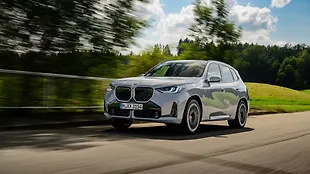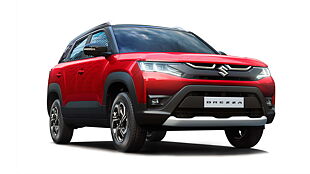Introduction

If a car is priced under Rs 10 lakh and wears a Maruti Suzuki badge it is destined to be successful. But the Baleno is very important to Maruti for very different reasons. It is their first foray into the premium hatchback segment which is dominated by Hyundai’s classy i20. The Baleno is also the second model to be sold out of the more premium Nexa group of dealerships. After Nexa took a big hit with the unenthusiastic response for the overpriced S-Cross, the pressure is on Baleno’s small car shoulders to justify Maruti’s premium marketing tactics.
On paper, the Baleno has all the ingredients to do just that. It looks masculine, has sedan-rivalling cabin space, it comes powered by proven engines and has loads of features to justify its premium positioning. Unlike the S-Cross, Maruti has got Baleno’s pricing spot on with it undercutting the i20 and the Honda Jazz by a considerable margin.
Design and Style

Based on the new ‘liquid flow’ design language, Maruti has attempted to make the Baleno look muscular and flowing and to a certain extent, they are successful too. There’s no doubt the Maruti Baleno does turn heads; it’s got a purposeful stance and the wide body lends it strong road presence.
Dominating the front-end styling is the V-shaped grille, which is flanked by a pair of projector headlamps which also feature daytime-running LEDs as part of the top Alpha trim. But the headlamps which are reminiscent of the old Swift look a bit too small compared to the rest of body. We especially like the rising window line and the flowing curves on the doors which gives the Baleno a very modern look.
It’s from the rear that the Baleno looks the most attractive. The stubby boot lid, chiselled bumper and strong shoulder bulges lend it a lot of character. However, we feel that Maruti designers went overboard with the some detailing on the Baleno. This is apparent with the front wheel arches which have massive bulges and make the Baleno look too front heavy when seen in profile. Even the large chrome strip running across the boot looks over the top.
The Baleno is based on an all-new Suzuki platform and the main target for the engineers was to keep body mass as minimum as possible. As a result, even the fully loaded Alpha trim weighs just 910kg in the petrol CVT trim and the Alpha diesel tops the scales at 985kg. This was achieved using high-tensile steel and other modern methods. So obsessed were the Suzuki engineers that they went in favour of lightness over torsional rigidity which is less than the Swift. The Baleno is a big car with a massive 2520mm wheelbase, length is a whisker under four metres and 1745mm wide. To put things into perspective, the Baleno is 40mm longer and a massive 51mm wider than the Honda Jazz, which was considered to be a big hatchback. The Baleno is underpinned by a standard MacPherson struts up front and a non-independent torsion beam suspension setup at the rear, while stopping duties are carried out by a conventional front disc and rear drum arrangement.

Interiors

Unlike the stylish exterior, the cabin looks more mainstream and Maruti has kept things simple. The dashboard though minimalistic is smartly styled, with the large touchscreen infotainment system dominating proceedings. The Delta trim which is the only variant the automatic car comes with, gets a traditional music system which looks a bit downmarket. The touchscreen system on the top Alpha variant also features CarPlay which is an India first. The screen itself is crisp and oozes of quality. The same can’t be said about the rest of the cabin though. Plastic quality and fit and finish though decent is not as nice as the Hyundai i20 or even the Honda Jazz. Lower down and on the door pads it’s apparent that Maruti has cut corners and plastics feel hard and shiny. There are many bits shared with the cheaper Swift too, like the power window switches, steering wheel, stalks etc.

Thanks to the massive exterior the roomy cabin doesn’t come as a surprise. The front seats are big, supportive and have acres of legroom. Thanks to the height-adjustable driver seat and the steering which adjusts for reach and rake, finding your ideal driving position is easy. But, if you really want the sense of space, there’s no place like the rear. There’s enough legroom here for the tallest of people unless you’re Shaquille O'Neal. The headroom isn’t equally generous though thanks to the swooping roofline. The bench itself is comfortable with a perfectly angled backrest. On the downside, the seat squab is a touch too short and the bench is flat which doesn’t offer enough lateral support. There are plenty of storage spaces in the cabin in the form of multiple cubby holes but the glovebox is tiny. The boot at 339litres is humungous but the lid opening is quite high and narrow, which makes loading heavy bags a shoulder straining affair.

Safety and Equipment

In the top Alpha trim the Baleno comes equipped with touchscreen infotainment system which houses Apple CarPlay, navigation and a music system. Apart from this the Baleno gets all the basics like climate control, key-less go, reverse camera with sensors, auto headlamps, daytime running lamps and a comprehensive trip computer with a colour screen on the instrumentation. The Baleno CVT however comes only in the mid Delta variant and it misses out on important features like touchscreen interface, key-less go, reverse camera, parking sensors, trip computer, alloy rims and fog lamps. In terms of safety, Maruti sets a new benchmark by offering two airbags and ABS as standard across the range.

Engine, Performance and Braking

The Baleno is powered by the same pair of petrol and diesel motors that does duty in the cheaper Swift. As the Baleno weighs nearly 100kg less than its smaller sibling it can get away with identical motors.
The Baleno petrol automatic is powered by a 1.2 litre motor which is good for 83bhp and 115Nm of torque. As soon as you start the motor it settles down to a near silent idle. In peak hour stop-go traffic, we found the transmission well suited to the characteristics of the engine with notably less of the rubberband effect usually associated with CVTs. Whether ambling in town or cruising at 80kph, the transmission keeps engine speeds within the 1200-2000rpm bracket for best efficiency. Part throttle responses are good too with a linear build of power from the 83bhp petrol motor. As a result, overtaking slower traffic isn’t much of an effort. If there’s a negative, it’s at full throttle, where revs are held at 5500-6000rpm (for max power) and make the engine sound loud and strained, but that is expected of a CVT transmission. In our flat-out acceleration tests, thanks to its low weight and responsive gearbox the Baleno automatic managed to post good times. It took 13.3 seconds to reach 100kph and the roll-on sprint from 20-80kmph is dispatched in a decent 7.41 seconds. The feeling of a rubberband effect as you go faster is reflected in the 40-100kmph time, which the Baleno does it in a rather sedate 10.17 seconds.

The diesel Baleno, on the other hand, is powered by the familiar 1248cc 74bhp engine. Twist the key and the engine settles into a smooth albeit slightly audible idle. As there is no replacement for displacement, you’ll discover a bit of hesitation at low revs from the small capacity motor. But still the Baleno delivers power quite smoothly when the turbo comes on. Still, it’s not as immediately responsive as the 1.5-litre Honda or even the 1.4 Hyundai motor, so you do need a bit of planning when you slot in and out of gaps.
Post 1800rpm is where the action is, and the strong mid-range is where you should aim to be when you are driving. The engine feels the most comfortable here and relatively smooth at mid-rpms. Past 4000rpm power starts to tail off and there is no point stretching it to its 5200rpm redline. So it’s best when you use the mid-range, upshift early and power on. In favour of better drivability, Maruti has employed shorter fourth and fifth gears. As a result, the Baleno recorded some decent figures in our acceleration tests. 100kph is reached in a respectable 12.6 seconds and even its in-gear times of 11.09 seconds for 20-80kph in third and 15.09 seconds for 40-100kph in fourth are par for the course. The gearbox too has short throws and require minimal effort.

Ride and Handling

The Baleno isn’t a car that will engage the keen driver. Though it has decent body control, it simply doesn’t have the readiness to change direction as the Swift and it’s certainly not a car that enjoys being hustled. Its strength lies in the way it displays good stability at speed and handling is very safe and predictable, with no nasty surprises. As a family car, meant for sedate driving, the direct and precise steering and easy controls make it a stress-free car to drive.
As for the ride, due to the light weight it does feels a bit jiggly at low speeds and not very adept at handling sharp bumps, and you can feel the suspension thump through the light body. Though it never gets to the point of being uncomfortable and it is something you can live with. However, as you go faster, it settles down to offer a fairly flat and consistent ride. The brakes on the other hand offer good bite and stopping power, but a more linear pedal feel would have been welcomed.
Price and Fuel Economy

In terms of fuel efficiency, the Baleno’s light weight has a big role to play. In the city, the petrol auto managed a very impressive 11.9kpl while out on the highway it managed to return a respectable 16.8kpl. The 1.3-litre diesel, on the other hand, was expectedly much more efficient. It returned 14.2kpl in the city and 19.6kpl on the highway. When you consider the diesel’s overall 15.5kpl (75 per cent city and 25 per cent highway), it gives it a fantastic range of around 575km before you need to refuel your 37-litre tank.
Maruti has managed to price the Baleno very well with prices starting from Rs 4.99 lakh for the best petrol and going up to Rs 8.11 lakh for the top diesel Alpha variant. This makes it marginally cheaper than the Hyundai i20 and around Rs 40-50 thousand cheaper than the Honda Jazz.

Verdict
Final Rating: 3.81/5

As a straightforward, no-nonsense product, the Baleno does really well. It's a car with pretty much everything you would want from a premium hatchback. It's extremely spacious, has decent engines and you get loads of equipment for your money. It's pretty good from behind the wheel and rides well too. The engine is peppy enough for most situations and the good fuel economy means fuel bills won't burn a hole in your pocket either. Add Maruti's excellent after-sales and you get more than enough reasons to give the Baleno a serious thought. But as convincing as the Baleno is in most departments, it lacks the sparkle of the Hyundai i20 and the character of the Honda Jazz. However, it more than makes up for its somewhat lack of desirability by being the most affordable and sensible premium hatchback you can buy today.

Specification
| CAR NAME | Maruti Baleno | |
| Variant | Delta A/T | Alpha |
| ENGINE | ||
| Fuel | Petrol | Diesel |
| Installation | Front, transverse | |
| Displacement | 4 cyls, 1197cc | 4 cyls, 1248cc |
| Bore/stroke | 73.0/71.5mm | 69.6/82mm |
| Valve gear | 4 valves per cyl, DOHC | 4 valves per cyl, DOHC |
| Power | 83.1bhp at 6000rpm | 74bhp at 4000rpm |
| Torque | 114.9nm at 4000rpm | 189.9nm at 2000rpm |
| Power to weight | 91.31bhp per tonne | 75.12bhp per tonne |
| Torque to weight | 126.2Nm per tonne | 192.7Nm per tonne |
| Gearbox | CVT | 5-speed manual |
| CHASSIS & BODY | ||
| Construction | four-door hatchback, monocoque | |
| Kerb weight | 910kg | 985kg |
| Tyres | 195/55 R16, 185/65 R15 | |
| Spare | Full-size | |
| STEERING | ||
| Type | Rack and pinion, electric assist | |
| Turning circle | 9.8m | |
| BRAKES | ||
| Front | Ventilated discs | |
| Rear | Drums | |
| Anti-lock | Yes | |
| PERFORMANCE & BRAKING | ||
| 0-20kph | 1.46s | 1.06s |
| 0-40kph | 3.41s | 2.65s |
| 0-60kph | 5.78s | 4.88s |
| 0-80kph | 8.99s | 8.24s |
| 0-100kph | 13.30s | 12.65s |
| 0-120kph | 19.59s | 19.45s |
| 0-140kph | 29.85s | 29.60s |
| 0-160kph | 52.01s | NA |
| 0-180kph | NA | NA |
| 0-200kph | NA | NA |
| 20-80kph in kickdown/3rd gear | 7.41s | 11.09s |
| 40-100kph in kickdown/4th gear | 10.17s | 15.09s |
| 80-0kph | 33.39m 2.91s | |
| FUEL ECONOMY | ||
| City | 11.9kmpl | 14.2kmpl |
| Highway | 16.8kmpl | 19.6kmpl |
| Tank size | 37 litres | 37 litres |
| Range | 485km | 575km |
| INTERIOR MEASUREMENTS | ||
| Front | ||
| Legroom(Max/min) | 860/630mm | |
| Headroom(Max/min) | 970mm | |
| Shoulder room | 1340mm | |
| Seat base length | 490mm | |
| Backrest height | 600mm | |
| Rear | ||
| Legroom(Max/min) | 870/650mm | |
| Ideal legroom | 750mm | |
| Headroom | 890mm | |
| Shoulder room | 1300mm | |
| Seat base length | 460mm | |
| Backrest height | 580mm | |
| Boot | 339 litres | |
| Length/width/height | 710/1010/590mm | |
| Loading lip height | 830mm | |

![Maruti Suzuki Baleno [2019-2022] Image Maruti Suzuki Baleno [2019-2022] Image](https://imgd.aeplcdn.com/272x153/cw/ec/37710/Maruti-Suzuki-Baleno-Right-Front-Three-Quarter-147420.jpg?wm=0&q=80)























